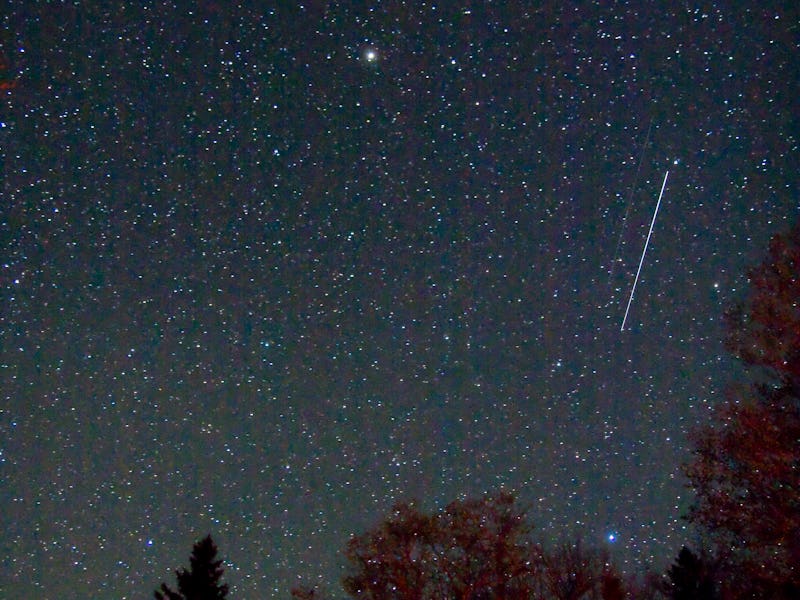You Can't See the Arietid Daytime Meteor Shower but You Can Hear It Right Now
Space rocks sound like an ebullient "ping!"

The Arietids are not the most well-known of meteor showers, but they are actually the most intense daylight meteor showers of the year (along with the Zeta Perseids). They happen to be peaking today.
Scientists don’t actually know from where the Arietids come from. Some suspect asteroid 1566 Icarus is to blame, but that object’s orbit also matches up similarly with 96P/Machholz, so who really knows.
At the very least, we know the Arietids originate from the location of the constellation Aries in the sky (hence the name), as well as the constellation Perseus. Both constellations are too close to the sun when they’re at the most visible, so we’re left with perhaps a few lucky hours in the early morning to actually see the meteors cross the sky.
Even if you can’t actually go out and see them whirring through the sky, you can listen in on the strange noises they’re making as they start hitting the atmosphere at over 87,000 miles per hour and burning up into a fiery blaze. Spaceweather Radio, run by the Roswell Astronomy Club in Roswell, New Mexico, collects radio signals reflected off meteor trails using a Yagi antenna. When a meteor passes over the observatory, you get to hear the echo in the form of an ebullient “ping!” — basically the signal picked up by the transmitter as the meteor moves through the air and ionizes the gas around it.
In any case, if you miss your chance to see the Arietids this year, don’t fret — they grace our planet every early June.